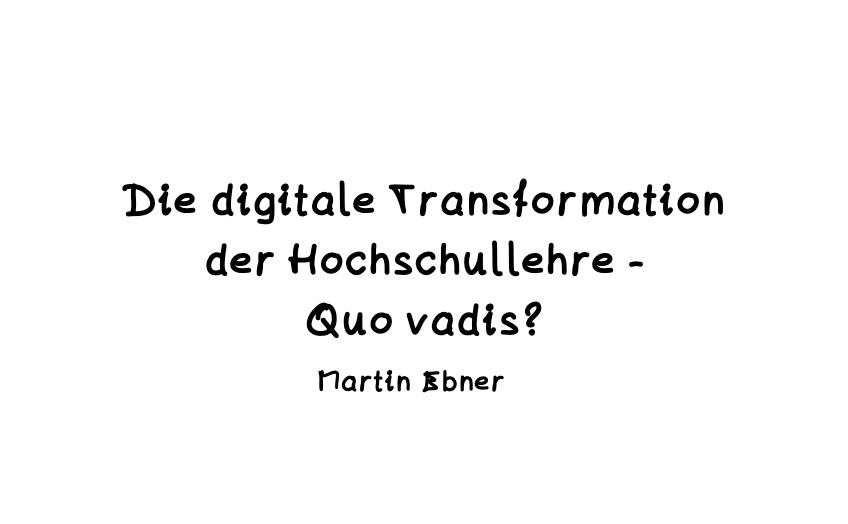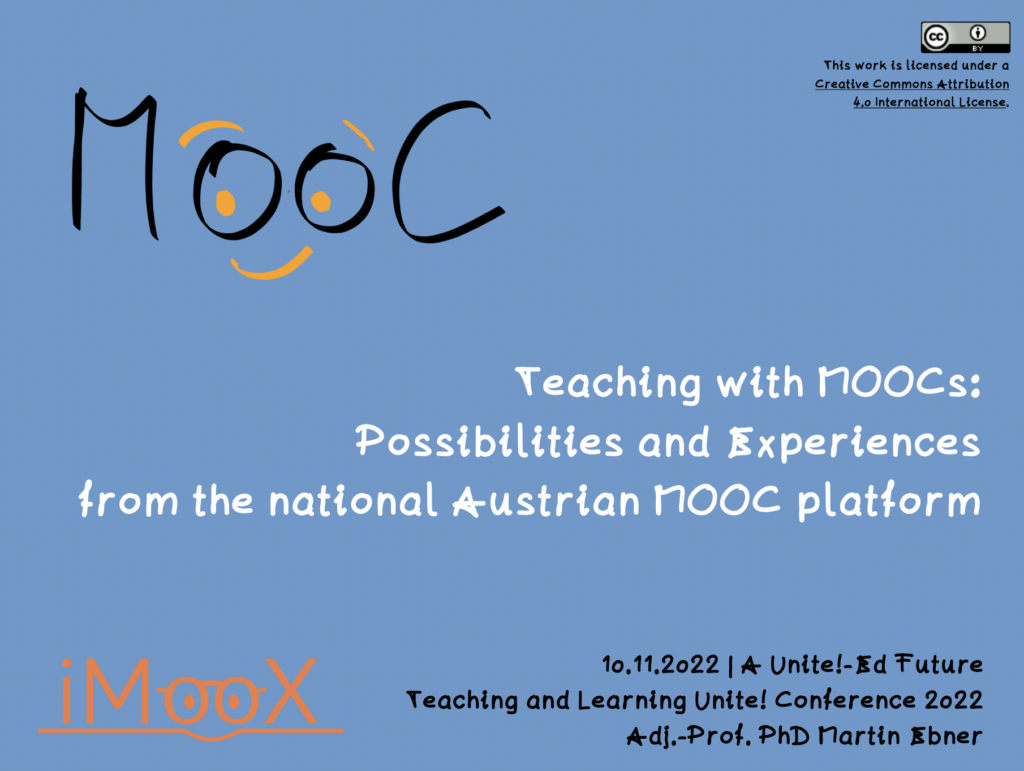Our research about „Patterns of quiz attempts in a MOOC. The full-points-pattern and other patterns on the way to a successful MOOC in a lecture setting“ was presented at EdMedia + Innovate Learning 2022:
Abstract:
The analysis of learner data in MOOCs provides numerous opportunities to look for patterns that may indicate participants‘ learning strategies. In this article, we investigated how participants in a MOOC (N=1,200), in which they must successfully complete a quiz in each unit, deal with the fact that they can repeat this quiz up to five times. On the one hand, patterns can be identified regarding the success of the quiz attempts: For example, 32.7% of the course participants always repeat the quizzes up to a full score, while about 16.0% of the participants repeat, but only until they pass all quizzes. Regarding the number of attempts, independent of the success, there is only a uniformity in „single attempt“; 12.6% of the participants only take exactly one attempt at each of the quizzes in the MOOC. An analysis of a subgroup of 80 learners which were students of a course where the MOOC was obligatory, shows that the proportion of learners attributed to patterns making more attempts is generally bigger. It can be shown as well that learners who uses several attempts, even after a full score results, tend to get better exam. The article concludes by discussing how these patterns can be interpreted and how they might influence future MOOC developments.
[full article @ conference homepage]
[draft @ ResearchGate]
Reference: Mair, B., Schön, S., Ebner, M., Edelsbrunner, S., Leitner, P., Schlager, A., Teufel, M. & Thurner, S. (2022). Patterns of quiz attempts in a MOOC. The full-points-pattern and other patterns on the way to a successful MOOC in a lecture setting. In T. Bastiaens (Ed.), Proceedings of EdMedia + Innovate Learning (pp. 1169-1179). New York City, NY, United States: Association for the Advancement of Computing in Education (AACE). Retrieved July 13, 2022 from https://www.learntechlib.org/primary/p/221430/



